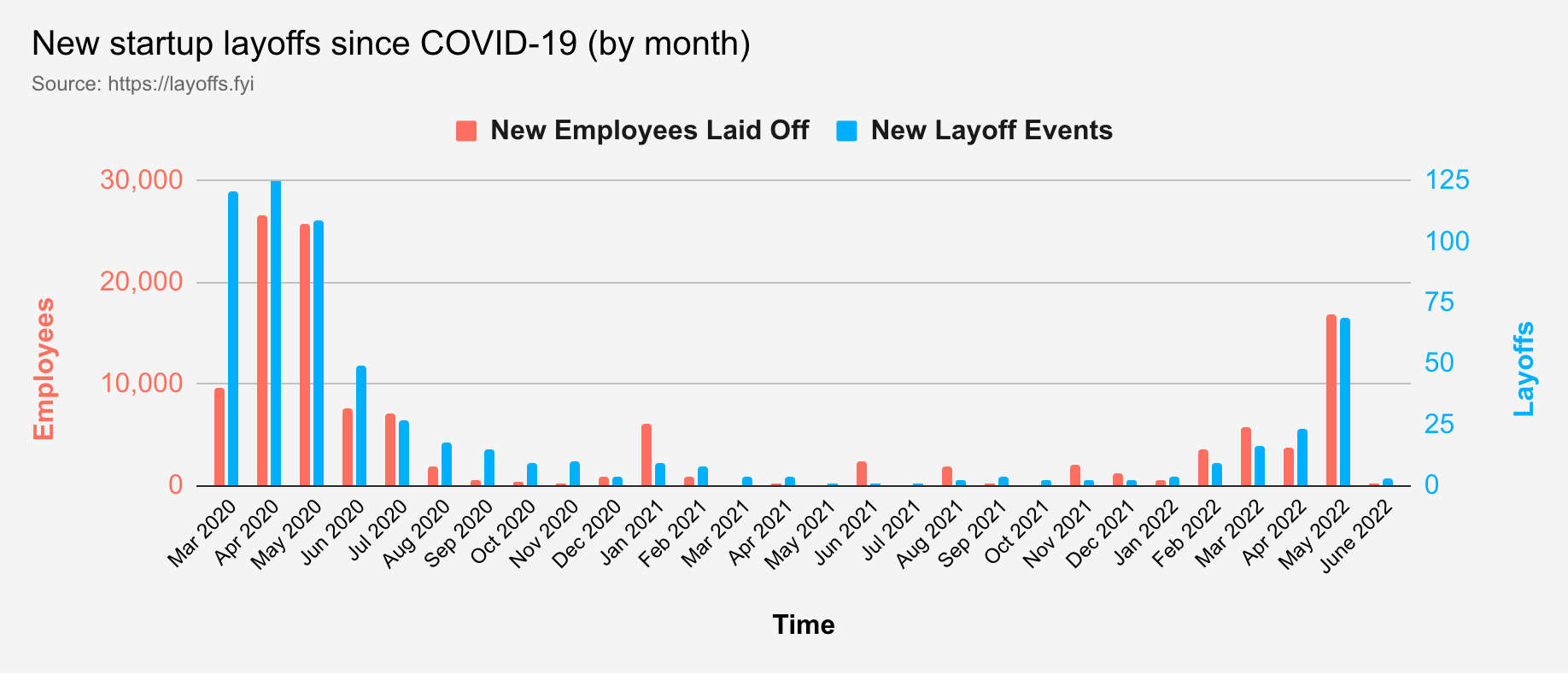There have been 115 tech companies with layoffs since April 2022 and a steep increase in May.

Source Layoff.fyi.
See also:
Links to this note
-
Running a Startup During a Recession
Startups are a microcosm of the economy and we can observe that things are changing quickly towards a recession footing. The effects of inflation on valuations are readily apparent, but we also see that things were too good to be true and investors and late stage companies exploited it.
-
How to Measure the Health of a Startup
Here are the most useful metrics I’ve found for running a startup. These should be measured and reviewed regularly. The metrics that matter most the ones that raise questions and drive useful discussions. Try to avoid difficult to calculate metrics that are hard to build an intuition about (people don’t expect much from simple ideas).
-
It’s becoming clear that remote work isn’t going anywhere. A large portion of the workforce continues to work from home. Return to office stagnated. Office real estate value is plummetting.
-
What Founders Should Know About Interest Rates
Between 2008 and 2021, the market was operating under zero-interest rate policy (ZIRP). That changed in 2022 back to historically normal interest rates (5-6%) set by the Federal Reserve.
-
Outline for my annual essay about things I learned and reflections for the year.
-
Layoffs Don’t Improve Company Performance
The recent layoffs in tech, especially the large companies like Google and Amazon, got me thinking about the effect of layoffs for the business doing the layoffs. It might be mostly bad. A study of layoffs from 1979 to 1997 found that companies that announced layoffs had negative stock returns and larger layoffs led to greater negative stock returns. It doesn’t increase individual company productivity—a study of 140,000 US companies from 1977 to 1987 found that the greatest increases in productivity had nothing to do with downsizing. They also lead to losing people that businesses don’t want to lose—one third of the companies rehire some of the employees they lost because they still need their skills.